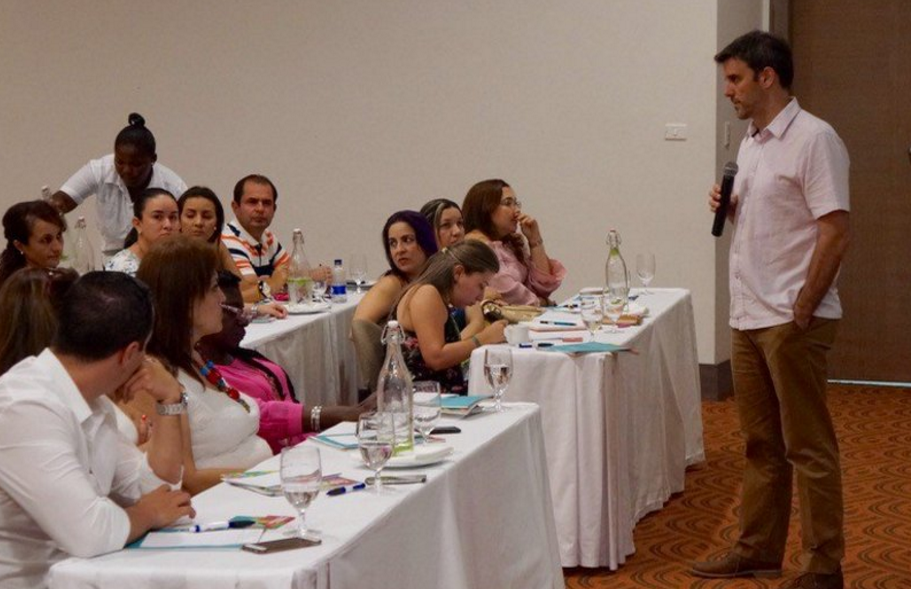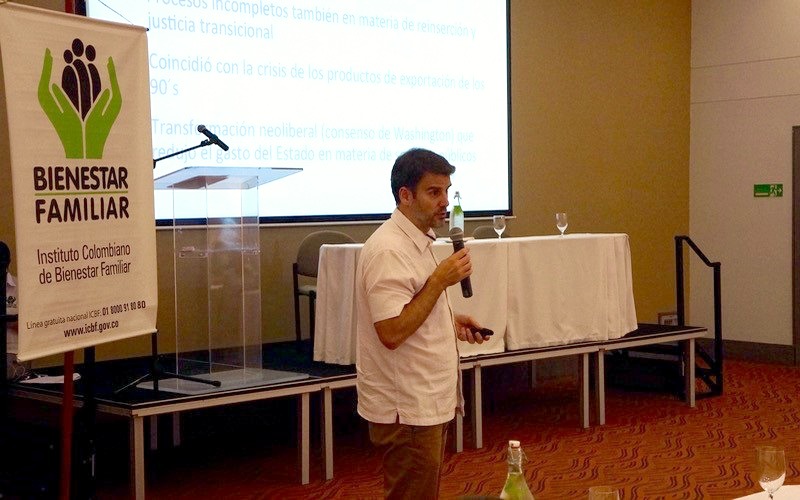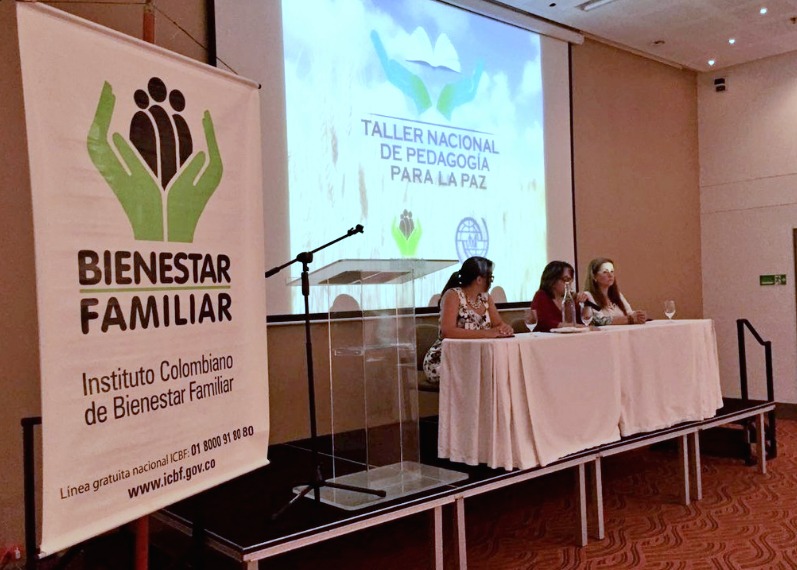Interpeace shares peacebuilding experiences in Colombia

From June 27 - 28, Interpeace participated in an event organized by the Colombian Family Welfare Institute (ICBF) in Cartagena. The event gathered several Family Defenders and their teams from different regions of the country, to prepare them for the diverse challenges of the peacebuilding process and to ensure children’s and teenager’s rights in those regions of the country that have been prioritized for the post-conflict.
The activity focused on updating these Family Defenders on the challenges they will face during the implementation process, by strengthening their capacities with instructive knowledge and useful methodologies that can be used in the most affected areas, where the demobilization of minors from guerrilla ranks will occur. For this activity the ICBF asked Interpeace to make two interventions, which were presented by Enrique Sánchez Airas, Head of Programme Development for Interpeace’s Regional Office in Latin America. His presentations were about the lessons learned of the post-conflict process in Central America, as well as a resilience approach for peacebuilding and how this can contribute to the work done by Family Defenders with at risk children and teenagers.
Amongst the topics mentioned during the first day of the event, Enrique Sánchez commented on the violence transformation processes in the different stages of the post-conflict in Central America and how these affected the youth in particular. He discussed the effects of the different public policies implemented in the countries of Central America and described how the gang’s phenomena evolved in the Northern Triangle. Moreover, Sánchez spoke about the lack of attention to minors in the demobilization processes and the differences with the Colombian context. After his presentation there was an open exchange of ideas about the implications of these lessons to the process of demobilization, which will occur in a few months in Colombia.

Enrique Sánchez Airas, Head of Programme Development for Interpeace’s Regional Office in Latin America. Photo credit: Interpeace
Interpeace also participated in the final panel of this event, a debate with Gloria Camilo of War Child and Paula Ila of the National Centre of Historic Memory. In his intervention about the resilience approach in peacebuilding, Enrique explained the origins of the concept of resilience and the particularities concerning peacebuilding, including the identification of some types of negative resilience, which is an aspect that is not present in the description of resilience by other disciplines. There was also an emphasis on the different levels of the concept’s application: individual, community, State and social. Lastly, there were three types of resilient capacities identified: absorption, adaptation and transformation, emphasizing that the most relevant, from the peacebuilding perspective, is the capacity of an individual or a social group to positively transform their reality. All the contributions on this subject were framed under the Frameworks for Assessing Resilience project that Interpeace implemented in Guatemala, Liberia and Timor Leste for the past two years.

